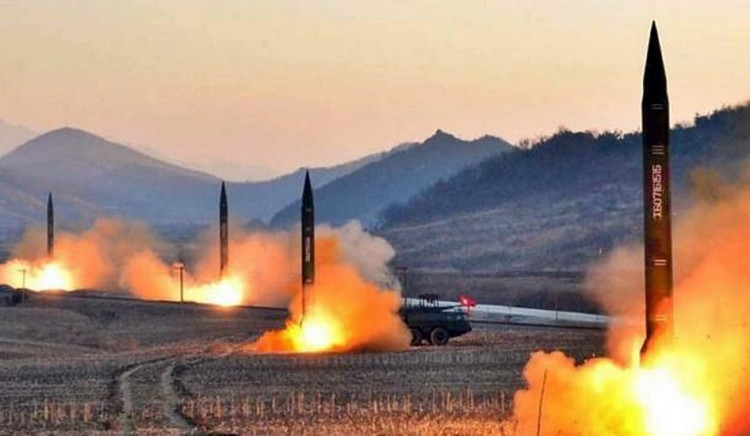Now, we know what North Korea really means by "denuclearization," and it's not president Donald Trump's definition.
Confirming what Trump's critics have said since the failed Singapore summit in June, denuclearization in North Korea's understanding means Pyongyang will never unilaterally surrender its nuclear weapons unless the United States first remove the nuclear threat it poses.
What North Korea also demands is for the U.S. to pull-out or greatly reduce its 29,000 troops stationed in South Korea. North Korea further demands the U.S. fold the nuclear umbrella protecting South Korea and Japan provided by American nuclear ballistic missile submarines.
Political analysts said the official Korean Central News Agency (KCNA) statement confirms what critics of Trump have long said: that Kim Jong-un will never voluntarily surrender a nuclear arsenal he sees as a stronger guarantee of his regime's survival than whatever security guarantees the United States might promise.
"The United States must now recognize the accurate meaning of the denuclearization of the Korean Peninsula, and especially, must study geography," said the KCNA statement.
KCNA said that when North Korea talks about the Korean Peninsula, "it includes the territory of our republic and also the entire region of (South Korea) where the United States has placed its invasive force, including nuclear weapons.
"When we talk about the denuclearization of the Korean Peninsula, it means the removal of all sources of nuclear threat, not only from the South and North but also from areas neighboring the Korean Peninsula."
In Thursday's statement, North Korea reasserted it will maintain this traditional definition of denuclearization. It also accused Trump of twisting what was agreed on in the futile Singapore summit on June 12 between Trump and Kim. It also accused Trump of turning all the post-summit talks into an impasse.
Analysts pointed out that North Korea has, for decades, pushed a concept of denuclearization that bears no resemblance at all to Trump's definition. North Korea has also consistently vowed to advance its nuclear weapons program until the United States removes its troops and the nuclear umbrella defending South Korea and Japan is folded.
It is worth noting that North Korea's reassertion of its long-standing position on denuclearization is indeed a major setback for Trumpian diplomacy, and its reliance on bombast instead of substance.
KCNA's statement likely means there will be no second Trump-Kim summit because denuclearization is now off the table given the North's vivid description.
The blunt statement might be an indicator the North has no intentions of returning to the negotiation table anytime soon, said Shin Beomchul, a senior analyst at Seoul's Asan Institute for Policy Studies.
Shin said it's clear that the North intends to keep its nukes and turn the diplomatic process into a bilateral arms reduction negotiation with the United States, rather than a process where it unilaterally surrenders its program.






